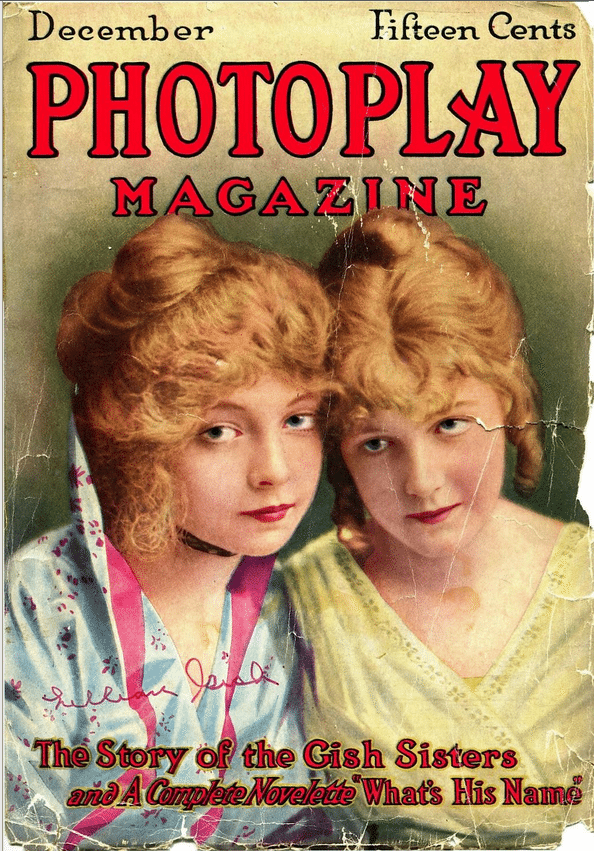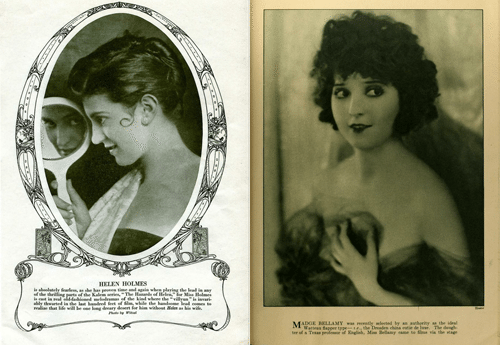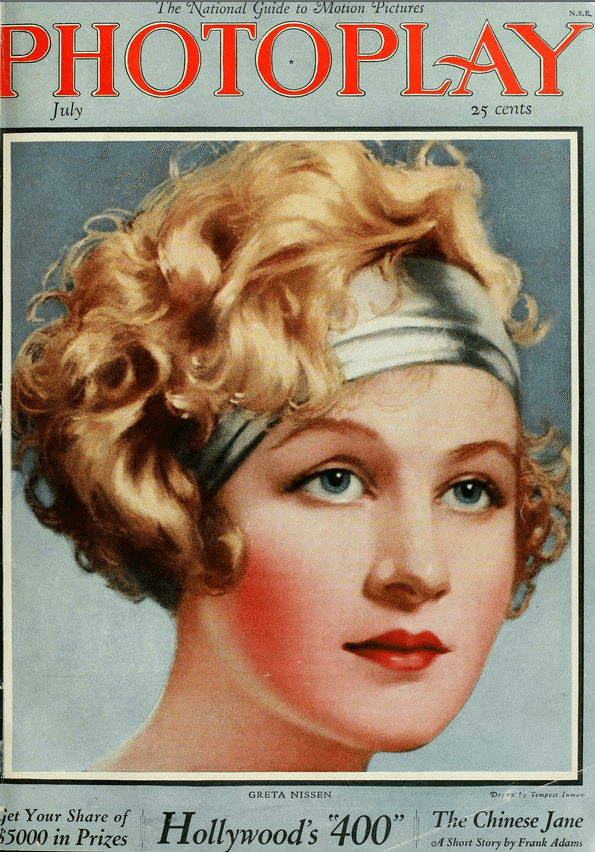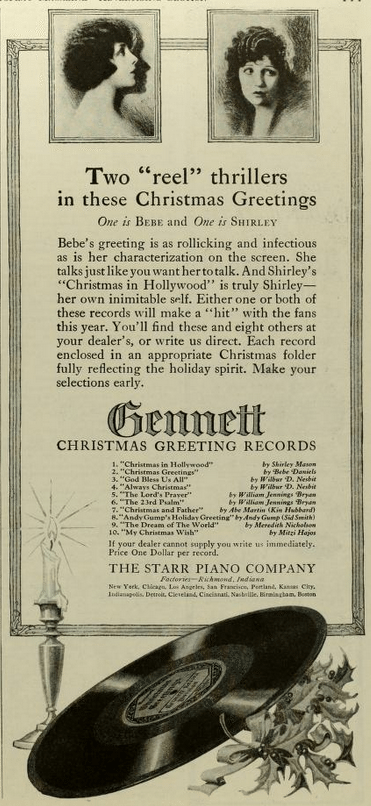In our present age of information overload, it’s difficult to imagine a time when information about celebrities was limited and difficult to find. But that’s precisely the problem film fans found themselves with in the early days of silent film. As we discussed in a previous post, actors were often not even billed with their real names, making it even harder for fans to find information about them. But in 1911 a magazine was introduced that would change the way fans accessed information about celebrities and, indeed, the way that journalists would cover celebrity life.
Established in Chicago, Photoplay magazine began as a publication that was primarily concerned with detailing and novelizing the plots and scenarios of new film releases. Most of the magazine was dedicated to covering and promoting these films, but in 1915 Julian Johnson and James R. Quirk were made editors and the format began to change. More space was dedicated to pin-up photos of the stars, features on actors and directors and answering readers’ questions.
As the publication’s circulation grew, and the flapper fashions of the ‘20s were ushered in, the magazine also expanded to cover fashion, health/beauty regimens and every other aspect of celebrity life and gossip the writers and readers could think of.
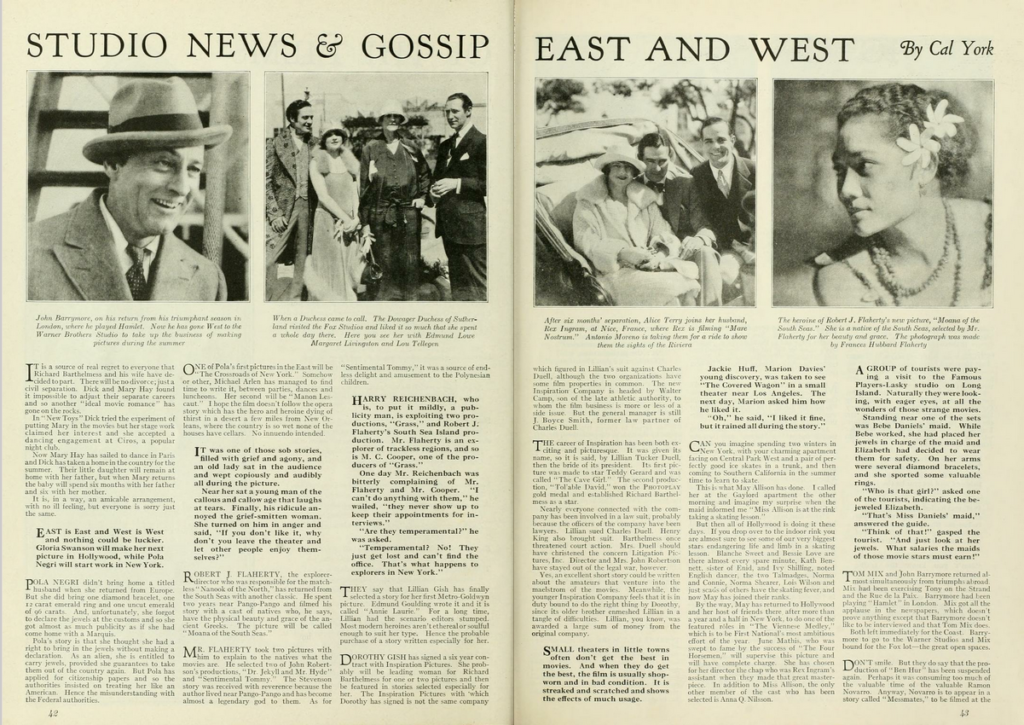
Because color photography wasn’t possible during the early days of the publication, the covers were created by talented artists, like J. Knowles Hare, who would paint a full color portrait of that month’s cover girl or guy.
The magazine also gave advertisers a space to feature their film-related merchandise.
Motion Picture Story was founded the same year as Photoplay, with similar ambitions, and with their introduction, a host of other film fan magazines were created, including Screenland, Pantomime, Picture-Play and Motion Picture Classic.
Although several of the aforementioned magazines were short lived, Photoplay continued to be a go-to source for fans well into the days of talkies, radio and television. It also helped launch the careers of writers like Adela Rogers St. John, Hedda Hopper, Louella Parsons and Dorothy Kilgallen. It ceased publication in 1980.
Check out some of our favorite Photoplay covers by visiting our silent film pinboard.
Want to dive deeper into the world of silent film? Keep up with my posts over on Curtains or on Chicago Nitrate.
